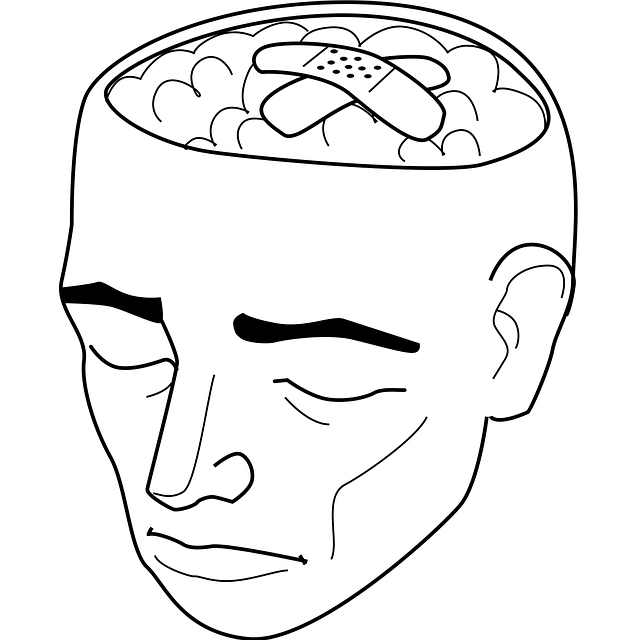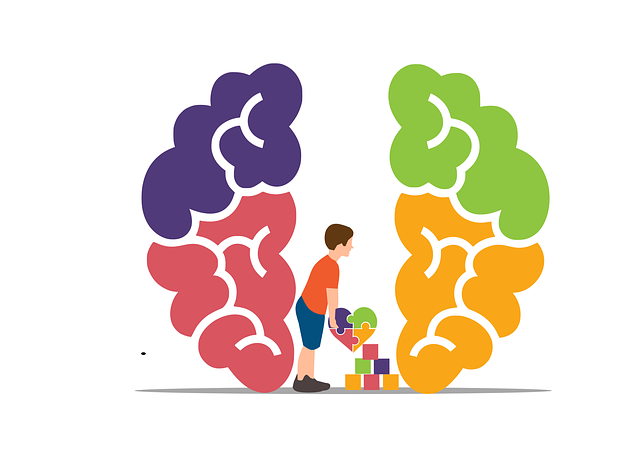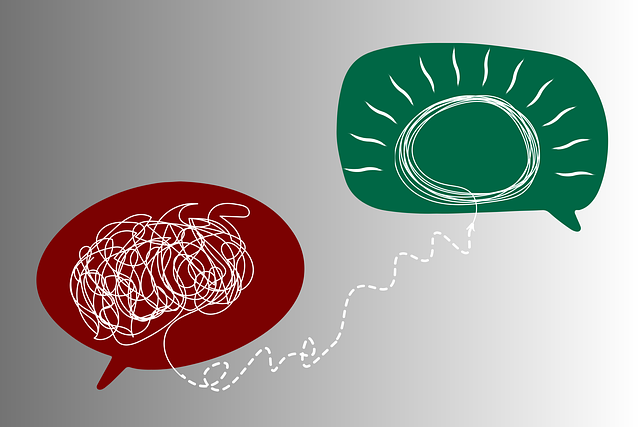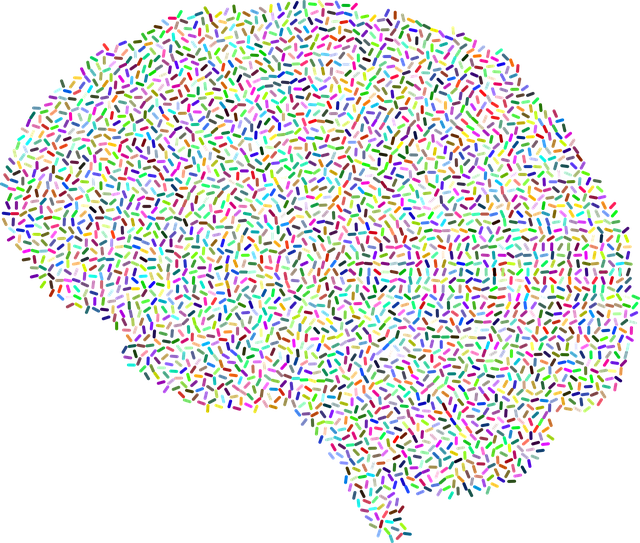Navigating adolescent mental health, particularly postpartum depression (PPD), involves addressing misinformation and stigma. Early identification of symptoms like persistent sadness, irritability, and sleep issues is key. Effective treatments include cognitive-behavioral therapy (CBT) for teens and tailored therapy for new mothers with PPD. Support groups, stress management workshops, and mental wellness coaching programs enhance community support. Early intervention through therapy, positive thinking exercises, and conflict resolution techniques improves outcomes for adolescents and prevents PPD escalation in new mothers.
“Mental illness diagnosis and treatment navigation can be challenging, especially for adolescents and new mothers. This comprehensive guide explores crucial aspects of mental health support. From understanding specific diagnoses like postpartum depression among new mothers to navigating effective therapies for teen mental health, this article offers valuable insights. Learn about the transformative power of early intervention in youth mental healthcare and discover resources to manage mental illness effectively. Key focus areas include therapy options for adolescent teens and postpartum depression.”
- Understanding Mental Health Diagnoses for Adolescent Teens
- Postpartum Depression: Symptoms and Support for Mothers
- Navigating Treatment Options: Therapies for Teen Mental Health
- The Impact of Early Intervention in Youth Mental Health Care
- Resources and Strategies for Effective Mental Illness Management
Understanding Mental Health Diagnoses for Adolescent Teens

Navigating mental health diagnoses for adolescent teens can be a complex process, often shrouded in misinformation and stigma. It’s crucial to understand that mental illness among teens isn’t merely ‘growing pains’ but may signal underlying conditions such as depression, anxiety disorders, or even postpartum depression, which require professional intervention. Early identification is key; symptoms can include persistent feelings of sadness, irritability, changes in appetite or sleep patterns, and difficulty concentrating.
Therapy for adolescent teens plays a pivotal role in treatment, with evidence-based approaches like cognitive-behavioral therapy (CBT) proving effective. Burnout prevention strategies for healthcare providers are essential to ensure they can offer consistent support. Well-designed mental health education programs and stress management workshops within schools and communities can also foster understanding and reduce the burden on healthcare systems.
Postpartum Depression: Symptoms and Support for Mothers

Postpartum depression (PPD) is a common yet often overlooked mental health challenge that can significantly impact new mothers. It’s characterized by intense feelings of sadness, anxiety, and exhaustion, which can make even simple tasks overwhelming. Symptoms may include persistent sad or anxious moods, changes in sleep patterns, difficulty concentrating, loss of interest in activities once enjoyed, excessive guilt or worry, and recurrent thoughts of death or suicide.
Mothers experiencing PPD require a comprehensive support system that includes access to therapy, such as cognitive-behavioral therapy (CBT) tailored for PPD, which can help address negative thought patterns and develop coping strategies. Social skills training and resilience building through therapy sessions can also foster better connections with partners, family members, and peers, enhancing overall emotional intelligence. Support groups and community resources are invaluable, providing a safe space to share experiences and connect with other mothers facing similar challenges. Early intervention is crucial in managing PPD effectively, ensuring that new mothers receive the help they need to navigate this phase with resilience and support.
Navigating Treatment Options: Therapies for Teen Mental Health

Navigating treatment options for mental health issues among adolescents can be a daunting task for parents and caregivers. Therapy plays a pivotal role in supporting teens grappling with challenges like postpartum depression, offering them essential tools to manage their symptoms and improve overall mental wellness. One effective approach gaining prominence is compassion cultivation practices, which encourage empathy and self-kindness, fostering healthier relationships and emotional resilience.
Incorporating positive thinking techniques within therapeutic frameworks can significantly enhance teen mental health outcomes. Mental wellness coaching programs have emerged as valuable resources, providing adolescents with personalized guidance to develop coping strategies and build life skills. These evidence-based treatments not only address current symptoms but also equip teens with the means to maintain their mental health in the long term, ensuring a brighter and more resilient future.
The Impact of Early Intervention in Youth Mental Health Care

Early intervention in youth mental health care is a game-changer for many adolescents and teens struggling with various conditions such as anxiety, depression, or even postpartum depression. When mental illness is identified and addressed during these formative years, it can significantly alter the trajectory of a young person’s life. Research indicates that early treatment through therapy for adolescent teens, when combined with positive thinking exercises and conflict resolution techniques, can lead to improved outcomes and better overall well-being.
This proactive approach not only helps in managing symptoms but also promotes self-esteem improvement, which is crucial for building resilience. By targeting mental health issues early on, healthcare professionals can prevent them from escalating into more severe disorders. For instance, identifying and providing therapy for adolescent teens experiencing postpartum depression can ensure they receive the necessary support to recover and bond with their babies effectively.
Resources and Strategies for Effective Mental Illness Management

Managing mental illness effectively requires a multi-faceted approach, and one crucial aspect is accessing appropriate resources and strategies tailored to individual needs. For adolescent teens, therapy plays a pivotal role in their mental wellness journey. Cognitive Behavioral Therapy (CBT), for instance, has proven effective in treating various conditions like anxiety and depression. Support groups and peer connections can also foster a sense of belonging and understanding, which is essential for building resilience.
In the case of postpartum depression, a common yet challenging experience for new mothers, specialized interventions are necessary. Mental wellness coaching programs designed for this demographic offer valuable guidance and support. Compassion cultivation practices have emerged as powerful tools to enhance self-compassion and reduce symptoms of perinatal depression. Additionally, risk management planning is vital for mental health professionals to ensure they can navigate complex cases safely and ethically, providing the best care for their clients.
Mental illness diagnosis and treatment can be complex, but with the right navigation assistance, individuals like adolescent teens and new mothers can find the support they need. Understanding common mental health diagnoses, recognizing symptoms, and exploring evidence-based therapies like those tailored for adolescent teens and postpartum depression are essential steps. Early intervention plays a pivotal role in improving outcomes, emphasizing the importance of accessible resources and strategies for effective management. By empowering individuals with knowledge and connecting them to appropriate care, we can foster better mental well-being and enhance the quality of life for those navigating these challenges.










